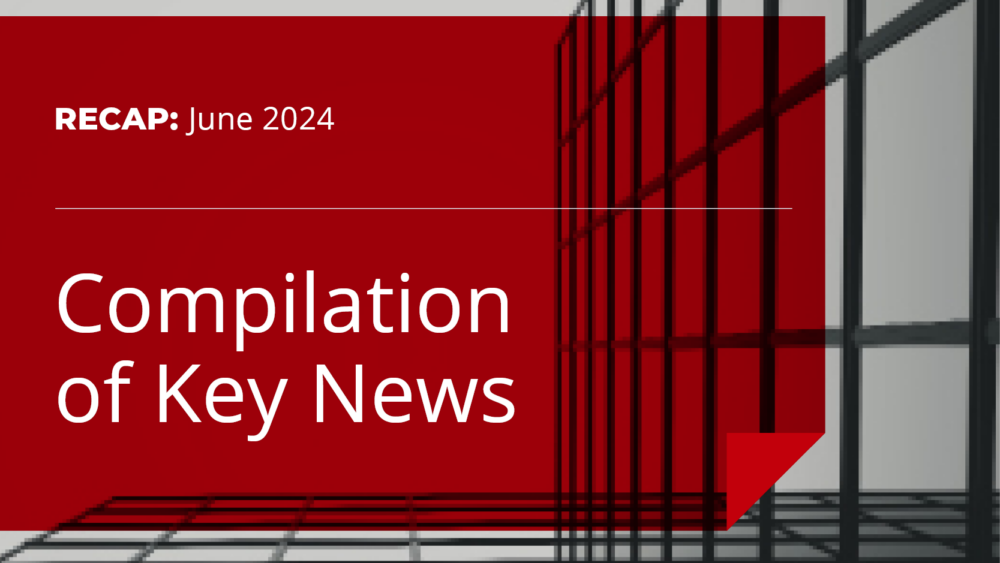From new financial changes starting a new financial year to Gen-AI research, we bring you a collation of key updates for June 2024.
July 1 brings changes that could save you money
Starting July 1, Australia’s financial landscape will undergo significant changes, impacting tax cuts, minimum wages, energy costs, and superannuation. Stage 3 tax cuts will provide Australians with an annual cash boost ranging from $350 to $4,500, depending on their income bracket. According to Finder, 40% of Australians have less than $1,000 in their bank account, and almost half could only survive a month or less on their savings if their income stopped. This tax relief, along with energy bill rebates of $300 for households and $325 for small businesses, aims to ease the cost-of-living pressures.
The minimum wage will increase by 3.75% and paid parental leave will extend from 20 weeks to 22 weeks, gradually increasing to 26 weeks by 2026. Additionally, the superannuation guarantee will rise to 11.5%, with a further increase to 12% in 2025. These measures collectively aim to provide financial relief and stability for Australians, encouraging them to rebuild their financial security.
New study ranks legal jobs most likely to be impacted by AI
A recent study by Dolman Law Group reveals that document review lawyers are the most at risk from AI, while corporate lawyers are the least likely to be impacted. The study assessed the vulnerability of various legal roles to AI based on task complexity, data volume, regulatory requirements, and interpersonal interactions. Document review lawyers, who manage large data sets with minimal human interaction, scored 6.75 out of 10 on the risk scale, with only 124 open positions available, indicating their high susceptibility to automation.
Legal researchers and mediators also face significant AI risks, scoring 5.5 and 4.75, respectively, due to their data-heavy and less interactive tasks. Conversely, roles such as corporate lawyers, which involve complex tasks and significant interpersonal interactions, scored lowest at 3 out of 10, making them less prone to AI replacement. The study emphasises the need to balance AI’s efficiency in handling repetitive tasks with the irreplaceable human qualities of critical thinking and empathy in the legal profession.
Ashurst study: Gen-AI helped 88% of respondents ‘feel more prepared for the future’
Ashurst’s recent report, Vox PopulAI: Lessons from a global law firm’s exploration of generative AI, provides unprecedented insights into the firm’s trials of generative AI (GenAI) technology in the legal sector. The comprehensive study involved over 400 participants across 23 offices and 14 countries, revealing significant time savings in producing first drafts—up to 45% on average, and 80% in some cases. This efficiency allows lawyers to focus on higher-value work and potentially accelerate service delivery. Despite GenAI’s efficiency, the study highlighted challenges in distinguishing AI-generated content from human output, with 50% of AI material misidentified in a blind study.
The report underscores the broader value of GenAI, with 61% of respondents feeling better supported in managing workloads and 88% feeling more prepared for the future. Ashurst’s trials not only evaluated the technology’s potential but also identified best practices for its future adoption, emphasising the importance of digital literacy and a tailored approach to embedding GenAI. This pioneering transparency sets a precedent for the legal industry’s ongoing exploration of AI technologies.
Thomson Reuters unveils generative AI-supported legal research platform
Thomson Reuters has introduced AI-Assisted Research for Australian lawyers through its new Westlaw Precision Australia platform. This innovative feature utilises a large language model (LLM) to provide synthesised legal answers rapidly, drawing from Australian authorised law reports. The GenAI capabilities of the platform enable lawyers, barristers, and solicitors to access relevant information quickly and efficiently, significantly accelerating the legal research process.
Despite these advancements, AI-Assisted Research is not intended to replace lawyers but to enhance their workflow by saving time and offering a reliable starting point for thorough research. Westlaw Precision Australia’s unique features, like the ‘Cited With’ function, help litigators discover related cases efficiently. This development underscores the transformative potential of AI in the legal profession, aligning with the expectations of 64% of professionals who foresee AI transforming their work.
About Law Image: Law Image is a leading document management company. Founded in 1999 and headquartered in Melbourne, we have offices in Sydney, Brisbane, and Perth. Law Image supports law firms and government departments across Australia with end-to-end legal document management solutions.
For Marketing & Branding enquiries, contact:
Siddhi Chavan (communications@lawimage.com)
Marketing Specialist




Comments are closed.